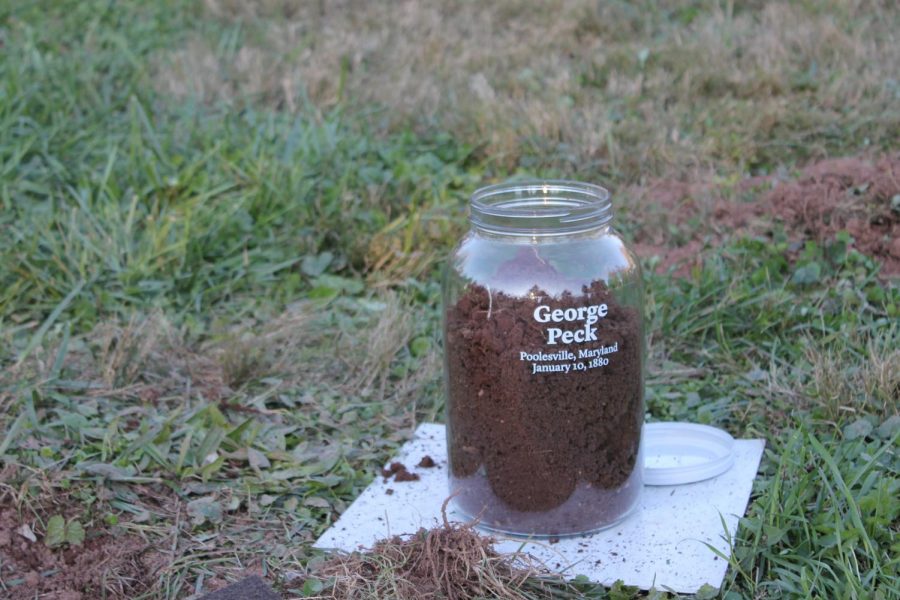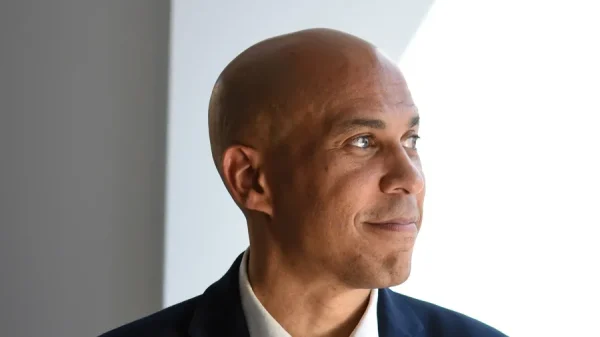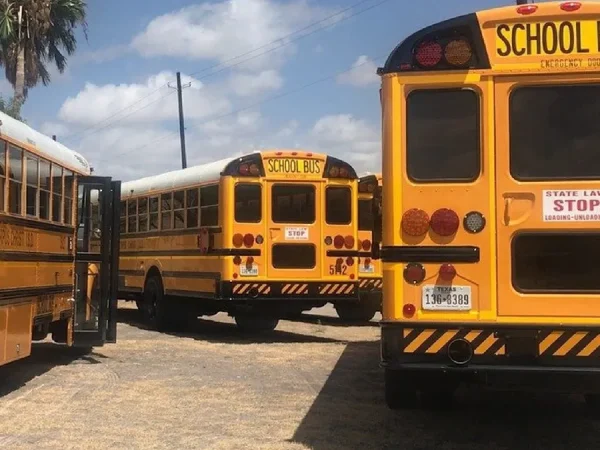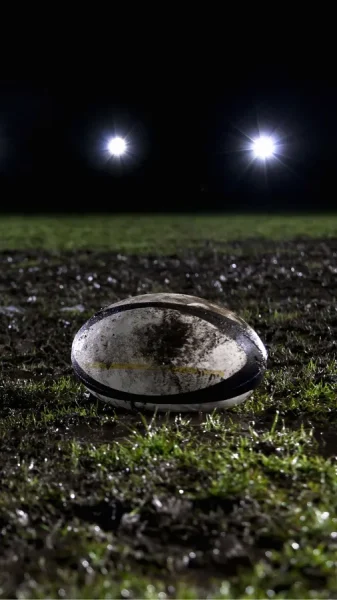Montogmery County Remembers Lynching of George Peck in Soil Collection Ceremony
Soil collected from the site George Peck was lynched.
On November 3rd, a soil collection ceremony was held next to the Poolesville Presbyterian Church in Poolesville, Maryland, in remembrance of the lynching of George Peck. Peck, who was lynched by a white mob in 1880, was hung by a noose in the field directly across the street from the Poolesville Presbyterian Church.
The ceremony, organized by the Equal Justice Initiative based in Montgomery Alabama in collaboration with local activists, is part of a national campaign to collect soil from all recorded lynching sites across the United States. Poolesville joins the likes of Wicomico county, Somerset county, Baltimore county, and Anne Arundel county in holding a soil collection ceremony.
The event began with remarks from Mr. Howard Copeland III, a preacher at the Hosanna Worship Center and security guard at Poolesville High School. Copeland’s family has held land in Poolesville for generations, with his great-grandfather Albert Thompson buying two acres of land (having put one in his daughter’s name, as it was illegal for African Americans to own more than one acre) and passing it down to his children.
Copeland introduced town council member Valaree Dickerson and county council members Will Jawando, Hans Reimer, and Andrew Friedson, who, after giving their remarks, declared November 3rd, 2019 as a day of remembrance for George Peck. Next, students from Poolesville High School and John F. Kennedy High School read works of poetry.
Those attending the event were then led across the street to the field where Peck was lynched. Jars were placed on the ground with trowels, and lines formed for those wishing to participate in the soil collection. One jar would be sent back to Montgomery Alabama to become part of the Legacy Museum run by the EJI. Another would be kept in Poolesville, and another would be sent to the Montgomery County Lynching Memorial Project.
“It was a very sobering experience, seeing everyone pay their dues to George Peck by celebrating his life and recognizing his untimely death.” said Maggie Vander Vort, Junior in the Independent Studies Program.
For Copeland, the event was personal. As a descendant of slaves from this area on both his grandmother’s and grandfather’s sides of his family, the event meant recognizing a part of Poolesville’s history that’s gone unrecognized for too long. “You can go into the old town hall and a confederate uniform. For me, I don’t want all the confederate monuments to be taken down… leave them up, but tell the real story of those people who were willing to die to leave others people enslaved.”
After the event, discussion groups were held in the Presbyterian Church by Coming to the Table, a nonprofit organization that works to facilitate discussions on racial injustice in the United States for local communities.
Going forward, Copeland hopes that this event will help to facilitate change in the greater Poolesville community. “To me, this memorial pulls the cover off the white picket fence part of Poolesville that slave owners wanted people to see. Behind it were human beings with hopes and dreams… families that were being owned. To me, this lynching memorial is giving honor to all those people who couldn’t protest out in the open.”

Andrew Sojka is a Senior in the Independent Studies Programs. This is his fourth year working for the Poolesville Pulse, and second year as Editor-in-Chief....









